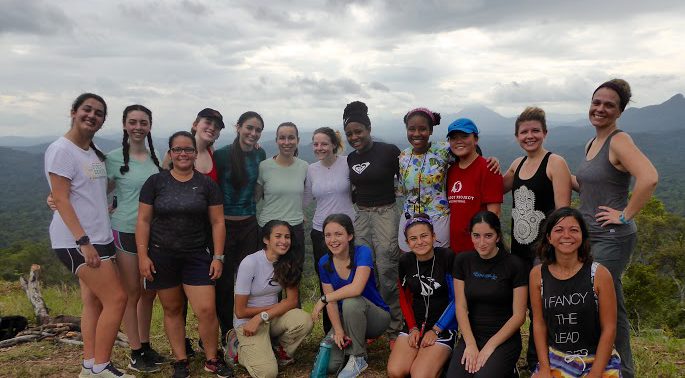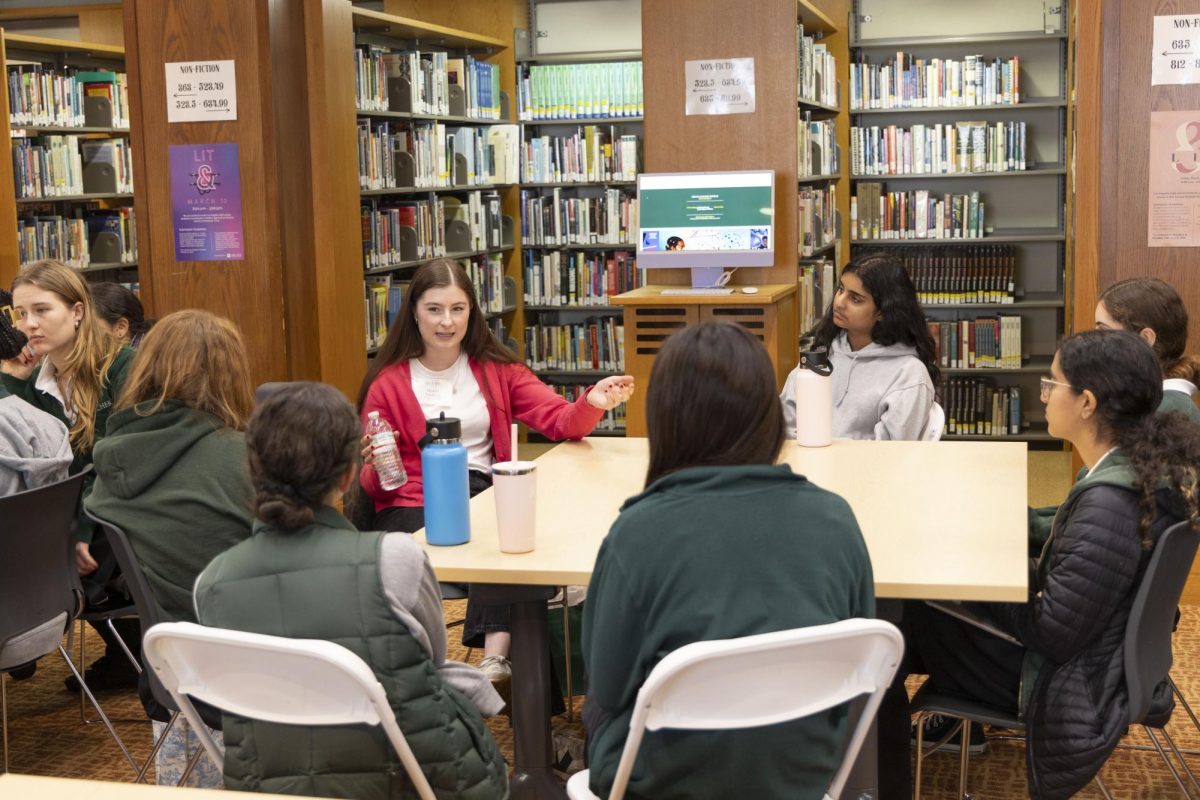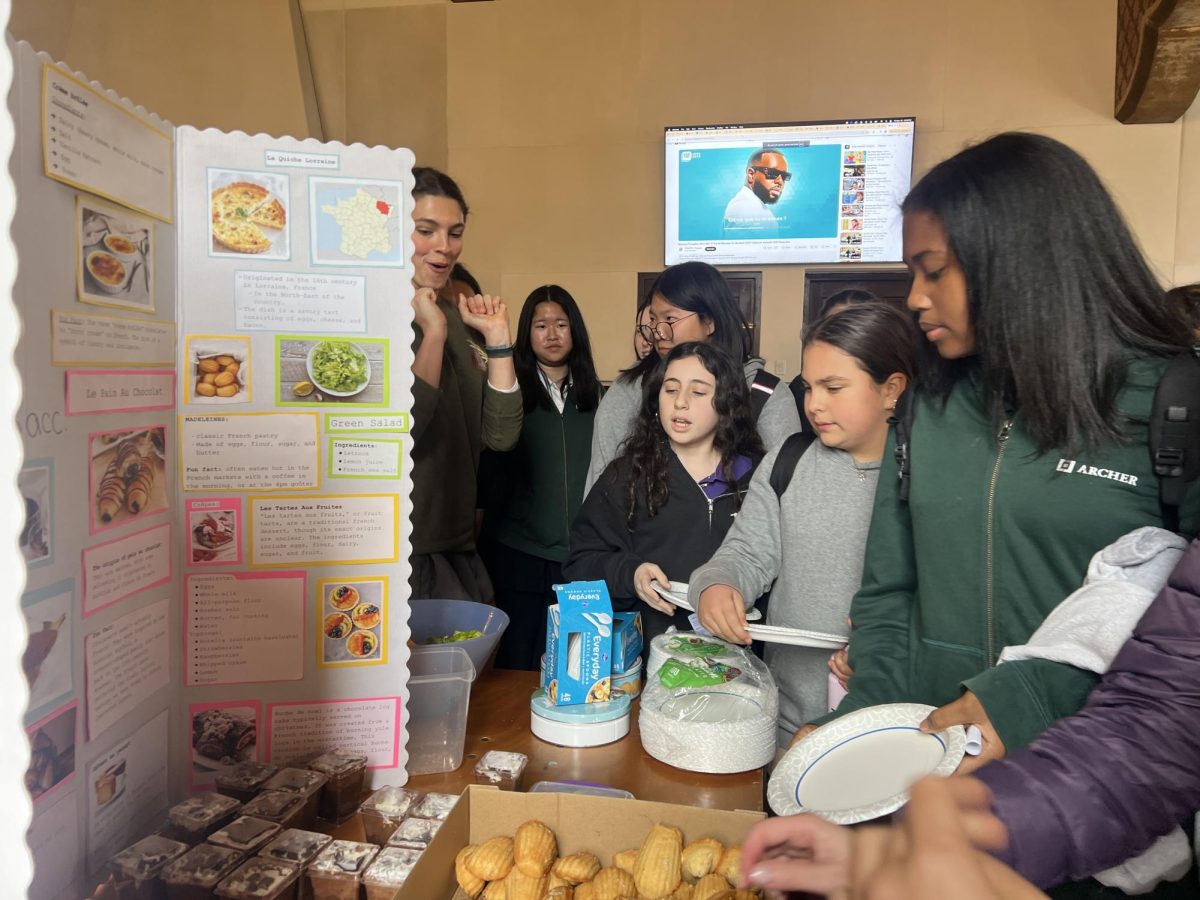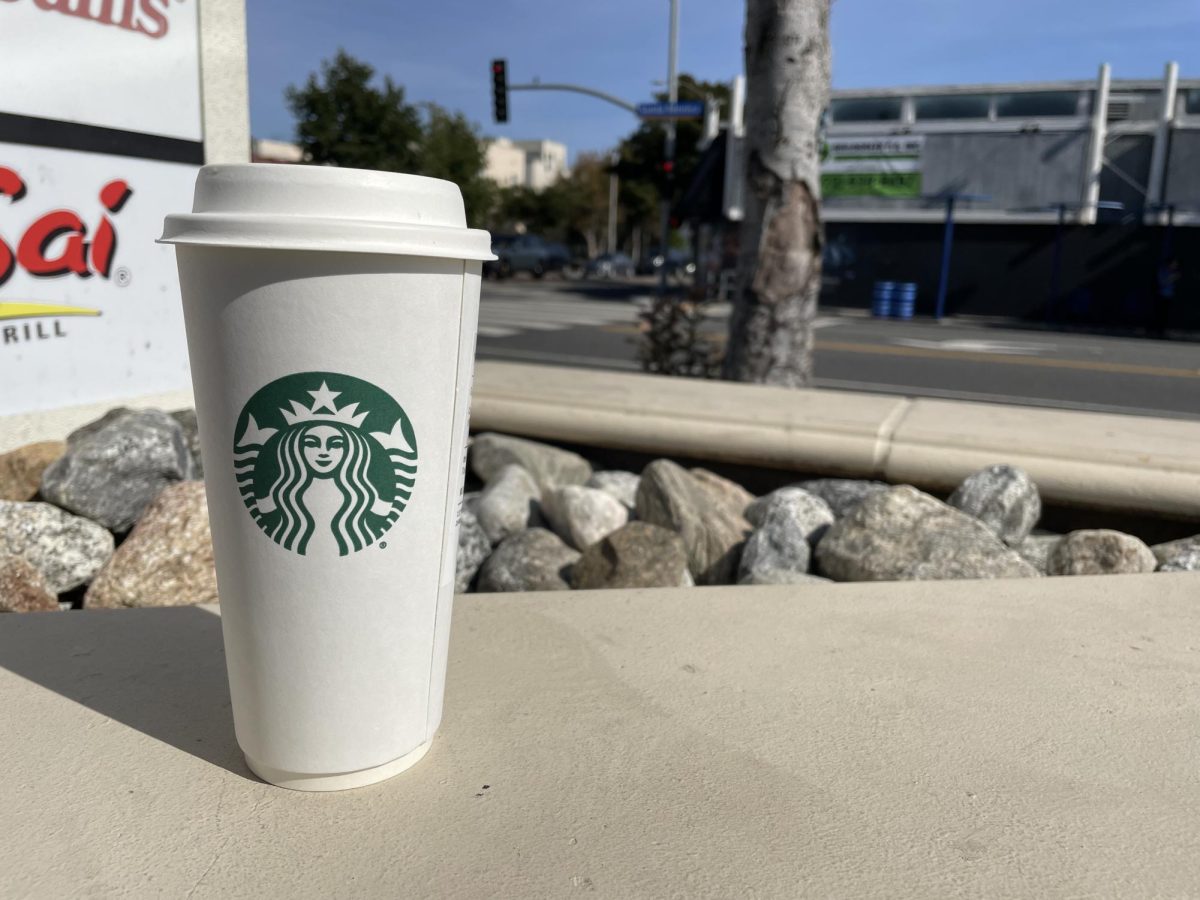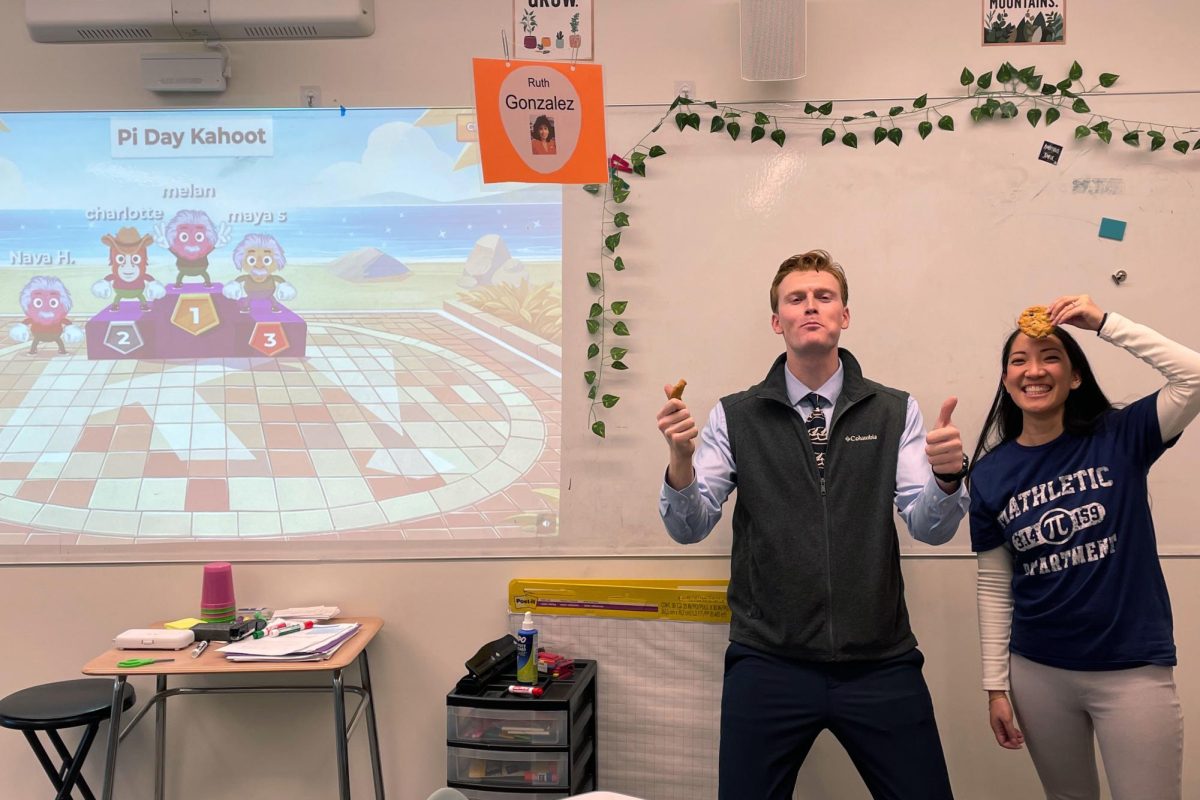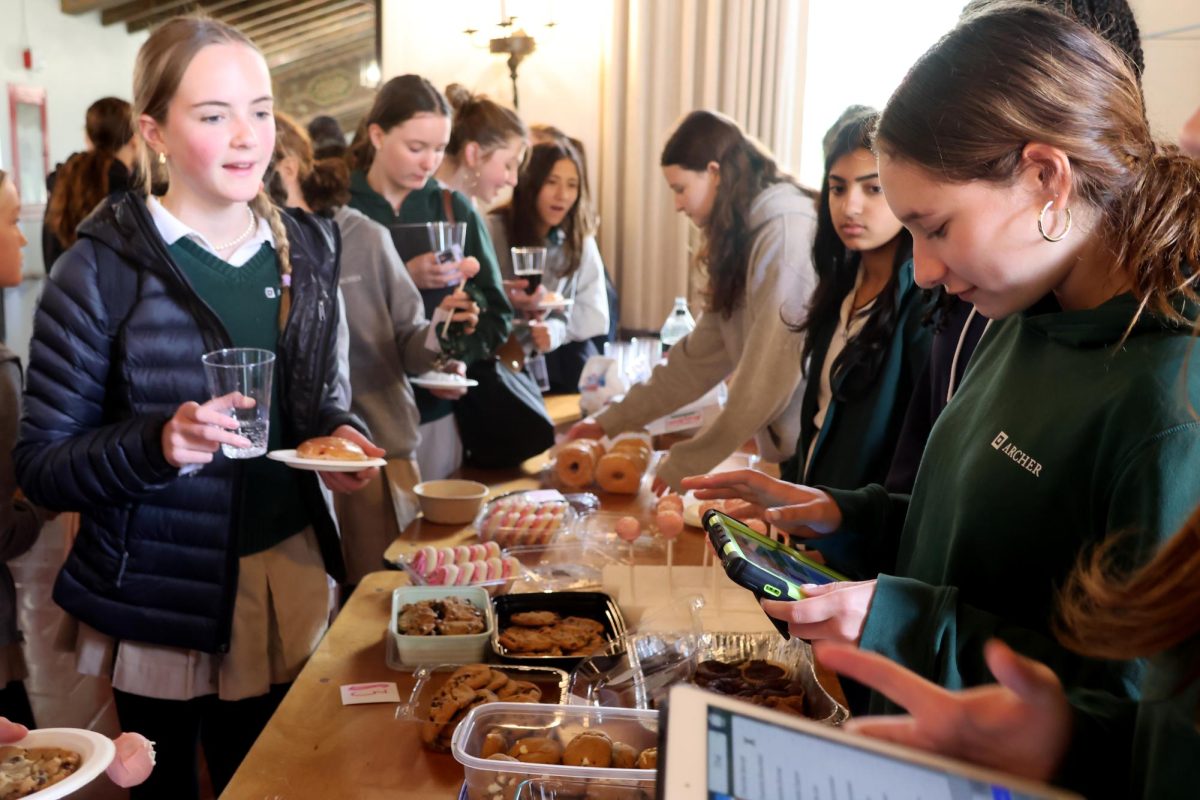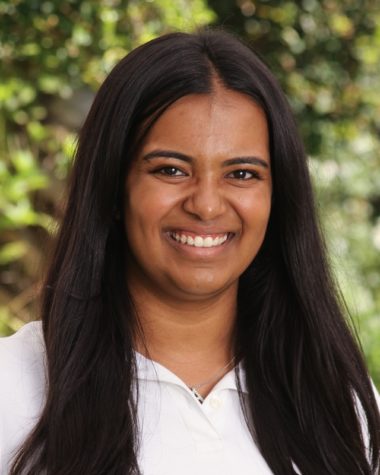Rather than going on college tours, catching up on sleep or laying on the beach over spring break, 13 Archer students and two faculty members journeyed to Central America for the first ever Archer Abroad trip to Belize.
The group spent four days in the Cockscomb Basin Wildlife Sanctuary, where they learned about biodiversity and then spent the rest of the trip at the Calabash Caye Field Station, a marine research facility. They addressed a range of topics, from rainforest ecology to rain ecology and biology.
World Languages Department Head Rachel Lauster and science teacher Hanna Shohfi accompanied the girls on their nine-day adventure.
The 13 students that went on the trip were Avery Bush ’17, Rachel Erickson ’17, Annie Moore ’17, Clara Gasparetti ’17, Leyla Namazie ’17, Harley Smith ’17, Sophie Smyth ’17, Liadan Solomon ’17, Cydney Davis ’18, Nelly Rouzroch ’18, Michelle Chung ’19, Megan Escobar ’19 and MaeLea Williams ’19.
Prior to going on the trip, students had the opportunity to develop research questions and create mini research projects. In Belize, they were able to gather data for their project.
Bush, Chung, Namazie, Erickson and Smith based their research on crabs.
“We were first going to test if all crabs lived in pairs and males versus females reactions to when their homes were dug up. We learned how to identify their genders and then we realized how they actually lived alone, and we weren’t finding any females,” Bush said. “So then, we put them in a bowl and were going to come back to them. When we went back a lot were dead, and we realized a bird had eaten them. We decided to test how crabs adjusted to plastic and trash.”
The group replaced sand with trash, which led to fewer crab deaths because it made it harder for birds to get to the crabs.
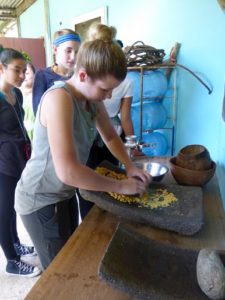
Each student and faculty member in attendance applied to join the trip for different reasons, which allowed for students to come together and bring a range of perspectives to the experience.
“I’ve been wanting to incorporate some form of field biology into the Archer Abroad program for a while now, so I found this course as an opportunity to go out into the field and learn outside of the classroom,” Shohfi said.
“I just applied [for the trip] because I thought the experience would be really cool,” Davis said. “First, it is really out of my comfort zone. There are so many things that I had not done, and I thought the trip would do that for me, and I had a blast.”
Lauster decided to go to Belize to get a sense of what an Archer Abroad trip looks like. In the future, she wants to create her own Archer Abroad trip for Spanish speaking students.
“It was a beautiful country, and a lot of the questions that I had about why it wasn’t a Spanish speaking country and the historical background of the country were answered because our guide gave us the lowdown,” Lauster said.
“I wanted to apply because I am really interested in biology, and I knew it was about ecology, so I looked it up and it sounded really fun. I also really wanted to go to another country through Archer with Archer girls so I could apply my knowledge outside of Archer,” Bush said.
The trip tested the group’s limits and pushed them out of their comfort zones, allowing them to learn and grow from their experiences.
“It was our second waterfall hike, and it was super steep, very rocky, and it took a lot of mental toughness. Everyone was very tired, and we all had to push each other to make it up to the top of that peak. But the view was so worth it,” Davis said. “After that, we went downhill and it was super narrow, it scared me. If you look on one side, it drops, it was just trees and rocks. It was too much, but it was gorgeous. It was so worth it.”
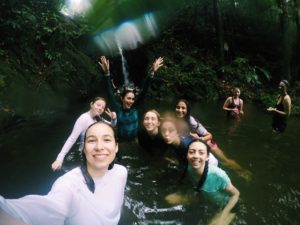
The group used the term “Type 2 Fun” to explain the feeling of enduring hard and strenuous experiences, but in the end feeling a sense of accomplishment.
For Lauster, an example of that would be some of the hikes that the group went on.
“We did some hikes that were pretty strenuous, a lot of the time you are right on the ledge and there is nothing to hold onto, but you end up at the most beautiful site, and it was all worth it,” Lauster said.
On the whole, students and faculty members had a positive experience on the trip.
“Their attitude about stepping out of their comfort zone, and that they were okay with it, made it more fun,” Shohfi said.
As students engaged with the numerous ecosystems, it allowed them to embrace the unknown.
“It was my first time snorkeling, and at first, I was really scared. But then I had a lot of fun doing it after the first couple of days. Now looking back, it was really fun and amazing,” Bush said.
“When you step out of your comfort zone, that is when the magic happens. That magic is really where the experiences occur where you really learn from and grow from. Ultimately, at the end of the day, there are stories we are laughing about,” Shohfi said.
Correction: The original version of this article incorrectly stated that McKenzie Wilkins ’18 went on this trip to Belize. This error has been corrected to Mae Lea Williams ’19. (Changed: April 28, 5:30 pm)



